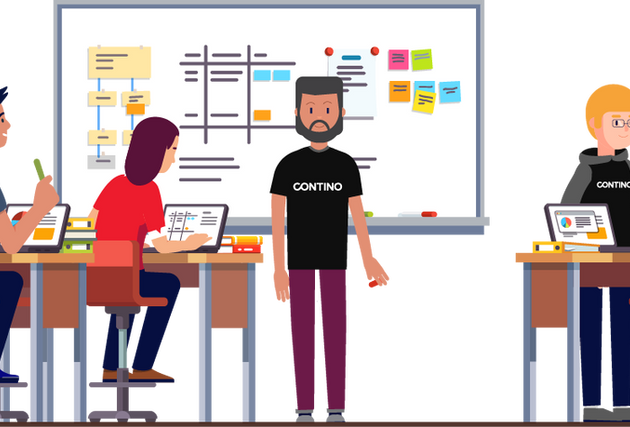Open Banking Summit: Reflections on the Challenges and Benefits of Consumer Data Right
As Australia waits in anticipation for Open Banking, it has certainly opened an avenue for industry leaders to voice both their concerns and hope for the sector. I recently moderated a discussion at Open Banking Summit NSW 2019 to explore the technological implications of the Consumer Data Right (CDR). The selected panellists offered an excellent representation of the Australian banking industry: from incumbent to mid-tier to challenger, across different stages of their Open Banking journey.
In case you missed it, here is a wrap of the key takeaways from our panel discussion:
However You Approach Data...Success Will Depend on Your Talent!
Our panel discussion focused on the impact of data on security, governance and management on the banking and finance industry. For example, the proliferation and reliance on APIs by the Australian banking industry will force all bodies to reevaluate how data can be used to deliver the best experience. As each panellist was at a different stage in their API journey, navigating through the ocean of applications remains a significant challenge.
We found the discussion to naturally gravitate towards the topic of microservices, decentralised business-oriented APIs popular for their scalability and customisability. Despite the trending use of microservices by banks and fintechs, their significance to the future of Open Banking was a subject of contention.
Why? The success of APIs is heavily dependent on the talent behind the code. Writing correct and effective microservices is critical. Banks unable to find developers who can write and manage them successfully will face constant roadblocks that will lead to security and operational risks. In comparison, large financial institutions have the luxury of resources. This is an advantage when training development teams and building a tailored microservices ecosystem.
Governance is Key to Unlocking the Power of Open Banking
Despite the controversy around microservices, it was reassuring to hear data governance is still high on the agenda.
The need for APIs and coupled with the challenges in pushing data embedded deep in legacy networks up to front-end systems, all pose unprecedented risks to consumer and organisational data. As interaction between incumbents, fintechs and other third parties become the norm, security is only as strong as its weakest link. Cybercriminals know this. Managing who we share data with, who has access to the data and how data is used is everyone’s responsibility.
Unfortunately, data governance won’t be prioritised the same across the board - it can be superseded by budget constraints or the pressure to innovate quickly.
Open Banking Is More About Collaboration Than Competition
Although the underlying purpose of the CDR is to promote competition, the value of collaboration did not go unnoticed. In the mission to put customers first, partnerships were a recurring theme throughout the session—across government, regulators, banks, fintechs and developers—and should be seen as an opportunity to forge new avenues of value.
The panel dove deeper into the subject of the customer and how customer experience is set to transform under Open Banking with cognitive CX - AI-powered insights customer data and behaviour. Beyond the complex technicalities of data sharing, the experience of the individual also needs to be considered when designing the API environment. This, in conjunction with partnerships will improve product offerings and ultimately help build meaningful customer relationships.
The question, “how will banks interact with potential partners and developers, including ones not yet in-market?” reinforces the importance of enhancing third party engagement, and this is where developer portals come in. They need to be intuitive, succinct and informative to attract new parties and amplify the existing partnership network. We need to think about the cognitive CX and experience for these individuals as well.
A work in progress
It was refreshing to see different companies at varying stages of their journeys sharing knowledge and expertise. While a significant project of work until the Customer Data Standards are finalised by the CSIRO, the benefits of the CDR will far outweigh the effort required and associated costs.






